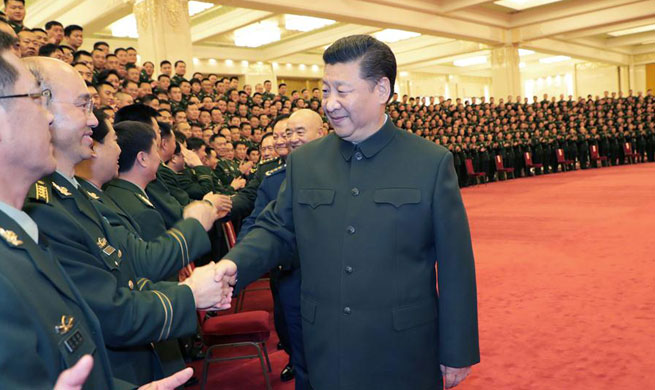by Xinhua writer Wang Zichen
BRUSSELS, Feb. 3 (Xinhua) -- A Belgian programmer behind Leela, a computer Go software that surprised many East Asian players with its strength, turned out to be not a Go enthusiast and last played the game more than a decade ago.
Gian-Carlo Pascutto, a 35-year-old electronics engineer whose day job is to work for Mozilla on the Internet browser Firefox, only played Go actively for half a year as a student in the city of Ghent at the age of 19, he said in an interview with Xinhua on Saturday.
Go, considered one of the four essential arts of the cultured aristocratic Chinese scholars in antiquity, is an abstract strategy board game for two players, invented in ancient China and believed to be the oldest board game continuously played today.
Pascutto, born and living in Ninove, roughly halfway between Brussels and Ghent, was more interested in chess and developed Sjeng, a software that repeatedly won global computer chess championships.
That experience, he said, helped him with developing Leela, which was quite strong compared to other Go software programs at the time.
Leela was first published in 2007, and Pascutto took it into the Computer Olympiad in China next year, where Leela won a silver and a bronze.
INSPIRATION FROM ALPHAGO
To be sure, Go software programs back then were still miles away from winning a game with the professional human players, until the emergence of AlphaGo, which crashed the best human players and rekindled global interest in the game,
Developed by Alphabet Inc.'s Google DeepMind, AlphaGo in 2015 became the first to beat a human professional player and later beat the world champions.
By that time, Pascutto had stopped working on Leela for quite some time.
"Because of AlphaGo there is a lot of publicity of Go," he said, "I read the paper (describing the algorithms used), considered what was applicable to Leela and implemented them."
"Very big improvement" in Leela was clear, Pascutto said, thanks to inspiration from the AlphaGo paper as well as "all the things that have improved in the computers during the years".
EASY USE
The much stronger Leela caught eyes in East Asia, where ordinary players -- those play Go not as a profession but as a pastime -- praise it to be particularly good in early stages of a game.
Besides, Leela's easy access and good performance on inexpensive hardware are widely applauded.
Many other Go software programs are difficult to use on a Windows operating system, or require expensive processing chips to run on, but Leela performs at a reasonably strong level on a personal computer, Zhou Yang, a Chinese player wrote on an online Go forum.
Despite not speaking Chinese, Japanese or Korean, Pascutto said he was aware of the comments of his work over the Internet, sometimes with the help of Google Translate.
"Many people try to send me an email (saying) like I found a position where Leela should go," Pascutto said, "(but) you cannot really improve the program on single position. If you improve one thing, it gets worse somewhere else."
"It's a big difference between explaining to a human player how to do it, and (explaining to) a computer how to do it," Pascutto said, which may also explain why Leela is strong but he himself doesn't really play Go very well.
ONE-MAN'S HOBBY
The latest Leela, featuring deep learning technology, has a "neural network" trained with more than 32 million positions from high-level Go games and taught to predict which moves a professional human player would most likely consider.
It's one-man's work for about two years, Pascutto said, when he spent around one and a half hours each evening.
"I enjoy it," he said, in developing Leela, "I learn new things. I have to learn all the things about how deep learning works."
There are fifteen thousand lines of code behind Leela, Pascutto said, and "if you have fast enough computer, it's about professional level. I'm satisfied with it now".
There are calls to translate Leela into other languages, and Pascutto thought about making a version for mobile phones.
"But this is for me a hobby, I need to find time," the father-of-two said.
For Go players, the good news is that Pascutto is still working on a related program.
AlphaGo's team published an article in the journal Nature in October 2017, introducing AlphaGo Zero, a version without human data and stronger than any previous human-champion-defeating version.
"Right now I'm working on Leela Zero," which has no human-provided knowledge and is modeled after the AlphaGo Zero paper, Pascutto said.

















